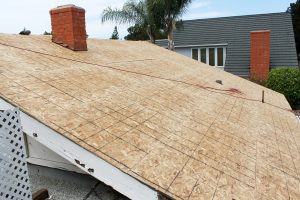It’s not uncommon to feel overwhelmed in the aftermath of a major storm. Dealing with the cleanup can be stressful enough. But what if you fall victim to contractor fraud on top of everything else? Not only will you have to deal with shoddy work and unnecessary repairs, but you may also be overcharged for the privilege. In fact, fraudulent contractors cost insurance companies up to $9.2 billion in 2021, which ultimately leads to higher premiums for policyholders.
Contractor fraud occurs when a contractor or contracting firm deceives another party about their services. Some common examples of contractor fraud include overcharging for services, making unnecessary repairs, and passing off used materials as new. In Florida, homeowners are increasingly being targeted by contractors who ask them to sign an “assignment of benefits” (AOB), giving the contractor control of their insurance claim. Unfortunately, some fraudulent contractors inflate their costs and bill the insurer after obtaining an AOB, leaving homeowners to deal with the consequences.

So, how can you avoid becoming a victim of contractor fraud? Look out for these red flags:
- Contractors who claim you have damage you didn’t know about without showing you evidence.
- Contractors who promise free repairs through your insurance company.
- Contractors who begin repairs before your insurer has inspected the damages.
- Unprofessional contractors with typos or grammatical errors in their contracts, who won’t provide basic business information, or who can’t show you their business insurance.
- Contractors who require full payment in advance, especially if they’re asking for 50% or more of the total estimate.
- Contractors who don’t pay their suppliers, leaving you to deal with the supplier on your own.
- Contractors from another state who may not be licensed in your state.
- Contractors who continually find new problems, especially if they’re finding several issues.
- Contractors who say they don’t need permits for major work.
- Contractors who require cash payments.
If you suspect that a contractor is trying to scam you, start documenting your concerns and hold on to any paperwork between you and the contractor, such as contracts, receipts, and canceled checks. Talk to your contractor about your concerns, and if necessary, get a second opinion.
At Swyfft, we understand that dealing with the aftermath of a natural disaster can be tough. That’s why we offer our Deductible Savings Program to help homeowners save even more on their insurance. Plus, our chosen vendors are all pre-qualified through a Managed Repair Network Provider.
Learn more about our program on our website or reach out to your Swyfft Agent directly.
